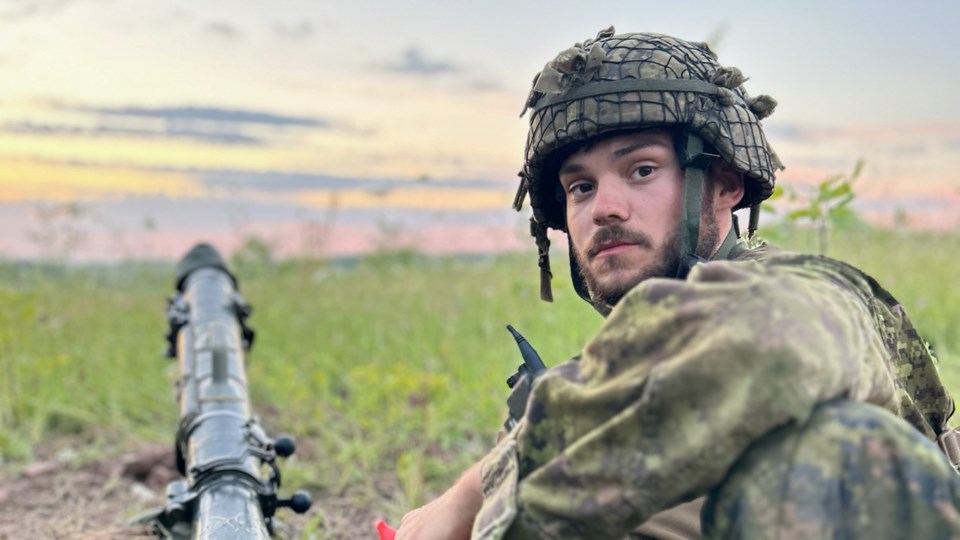A local reservist is honouring his roots today.
Indigenous Veterans’ Day is celebrated on Nov. 8 to honour the contributions of First Nations, Métis, and Inuit service members to the Canadian military. The day was first commemorated in 1994 in Manitoba.
Cpl. Ryley Piquette is carrying the eagle staff for the Algonquin regiment in Toronto at Queen’s Park today. He is currently apprenticing in the position of eagle staff carrier for the regiment.
As a member of Timiskaming First Nation, he said carrying the eagle staff means a lot to him.
“It’s important to honour the Indigenous people who have served and protected their country,” he said.
Pichette was born in North Bay, grew up in Timiskaming, and is a member of the Algonquin Regiment in Timmins. He went to a summer training camp when he was 16 and said the choice changed his path.
“I haven’t regretted it a day since,” he said.
Before attending the Black Bear summer training camp in 2018, he hadn’t really thought about joining the military.
“I’d just turned 16, and a buddy thought it was a good idea,” he said.
The Black Bear program is one of five Indigenous-led training programs within the military. It’s a basic military qualification course, similar to the courses that any reservist would take going into the military.
Indigenous Veterans Day is a chance to expand one’s knowledge, Pichette said
“I hope people go looking for more about the people who have served and who lost their lives,” he said. “It’s about respect. It’s so important to respect and honour them."
Sgt. Daniel Trudeau is with the Grey Wolf program, another one of the Indigenous training programs with the Canadian military, and said there are many options for participants.
“A huge portion of them decide to continue on with a career in the military when they finished the course,” he said. “So it went pretty well.”
Trudeau said the cultural components make many people feel more at home.
“It provides a little bit of comfort and familiarity because some these candidates come from all over Canada, some of them from up north where they have really tight-knit communities,” he said. “So they come here, and it’s a new place, new experience, new people, it can be difficult.”
Trudeau is originally from Wiikwemikoong Unceded Territory on Manitoulin Island.
He said the changes he's seen in the military and the inclusion of cultural components is a wonderful thing to see.
“The Grey Wolf program, for example, we’ve taken some cultural components and threw those into the graduation parade, they were smudged on parade,” he said. “And when they came on and off the parade square for graduation, they had a local drum group there to drum for them. I’ve never seen anything like that in my time in and was something really nice to see. It's nice to see some positive changes and a lot of positive outlooks as well.”
Both men said that respect for those serving now and those who have served in the past is key.
“I take part in both days and they’re both great for both sides, both cultures,” said Trudeau.



